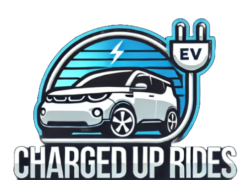Converting a diesel truck to electric is becoming an increasingly popular choice among fleet operators and individual truck owners alike. The shift towards electric vehicles (EVs) is not just a trend; it represents a substantial move towards sustainability, cost savings, and compliance with evolving regulations. This blog explores the compelling reasons to convert your diesel truck to electric, supported by relevant keywords to enhance your search engine ranking.
Environmental Benefits
Reduced Emissions
One of the most significant advantages of converting a diesel truck to electric is the drastic reduction in emissions. Diesel engines are notorious for emitting nitrogen oxides, particulate matter, and significant amounts of CO2. In contrast, electric trucks produce zero tailpipe emissions. When charged with renewable energy sources, such as solar or wind power, the overall emissions associated with electric trucks can be reduced even further. This makes electric trucks a cleaner option, contributing positively to global efforts in reducing air pollution and combating climate change.
Compliance with Regulations
As cities and countries worldwide implement stricter emissions regulations, converting to electric can help avoid potential fines and restrictions. Many urban areas are establishing low-emission zones where diesel vehicles are either banned or heavily taxed. By switching to electric, you ensure compliance with these regulations and contribute positively to local air quality. This proactive approach not only helps you avoid penalties but also aligns your operations with future regulatory trends, ensuring smoother business operations in the long term.
Economic Advantages
Lower Operating Costs
Electric trucks typically have lower operating costs compared to their diesel counterparts. The cost of electricity is generally lower than diesel fuel, and electric vehicles require less maintenance due to fewer moving parts. This translates to significant savings over time, especially as fuel prices continue to rise. According to estimates, fleets can save thousands of dollars annually by switching to electric vehicles. These savings can be reinvested into other areas of the business, enhancing overall financial health and operational efficiency.
Government Incentives
Many governments offer financial incentives for converting to electric vehicles, including tax credits, grants, and rebates. These incentives can offset the initial costs of conversion, making the transition more financially viable. Additionally, as the electric vehicle market grows and evolves, further incentives are likely to emerge, enhancing the financial benefits of making the switch. Staying informed about these incentives can provide additional opportunities for cost savings and financial support during your transition to electric.
Operational Efficiency
Quieter Operation
Electric trucks operate much more quietly than diesel trucks, which can be a significant advantage in urban settings. Reduced noise pollution allows for extended working hours in residential areas, enabling projects to be completed more efficiently without disturbing local communities. This quieter operation can also contribute to a more pleasant work environment and improved relations with the public, making it easier to gain community support for your operations.
Improved Performance
Electric motors provide instant torque, resulting in better acceleration and overall performance. This can be particularly beneficial for trucks that require quick responses in various driving conditions. Moreover, advancements in battery technology mean that electric trucks can now operate for an entire workday on a single charge, making them a practical choice for many applications. Enhanced performance capabilities and longer range help ensure that electric trucks meet the demands of modern transportation needs effectively.
Future-Proofing Your Fleet
Aligning with Industry Trends
The automotive industry is rapidly moving towards electrification. Major manufacturers are investing heavily in electric truck technology, and many are planning to phase out diesel engines entirely within the next few decades. By converting your diesel truck to electric now, you position your fleet to be at the forefront of this transition, ensuring longevity and relevance in a changing market. Embracing these industry trends can also provide a competitive edge and demonstrate your commitment to innovation and sustainability.
Supporting Sustainable Practices
Converting to electric not only benefits individual operators but also contributes to broader sustainability goals. By reducing reliance on fossil fuels and lowering emissions, you play a crucial role in combating climate change and promoting cleaner air for future generations. This commitment to sustainability can also enhance your brand image, appealing to environmentally conscious consumers and businesses. As sustainability becomes a key focus for many organizations, showcasing your efforts can strengthen your market position and attract new opportunities.
Conclusion
The transition from diesel to electric trucks is not just a smart financial decision; it is also a crucial step towards a sustainable future. With significant environmental benefits, lower operating costs, and improved operational efficiency, converting your diesel truck to electric is a forward-thinking choice. As the industry evolves, those who embrace this change will find themselves well-positioned to thrive in a new era of transportation. By making the switch, you contribute to a cleaner environment, realize substantial cost savings, and align your operations with the future of the automotive industry.

